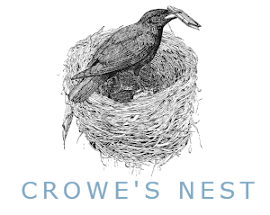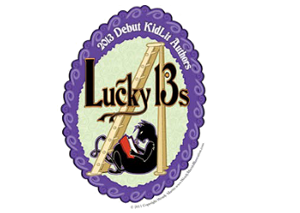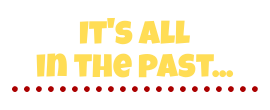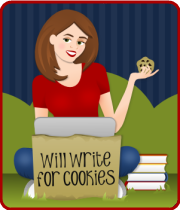First off, a huge thank you to Lynn(e) Schmidt from
The Submission Process for the
One Lovely Blog award, and to Richard at
Writing and Living by Richard P. Hughes for the
Great Comments Award. This was awesome. Thanks, guys!
Okay, onto more questions from that one post a couple of weeks ago. I got a lot of questions about queries in general. Tomorrow's the question about finding critique partners, and Thursday's is about researching agents. Next week-- probably Tuesday and Thursday-- it's how to know when your manuscript is ready.
I have been putting this post off for a very long time. Why? Because I am NOT, by any sense of the word, an expert on queries. (They're those little one page letters you write to get an agent to request to see pages.) Eventually, though, I decided that I'd share what worked for me. Who knows? Maybe something that I learned will help you. Or... sharing might make you think I'm a little insane. If you do, that's okay-- I felt a little insane doing it. If it starts to make you feel discouraged, though, STOP READING. That's seriously my biggest fear in sharing this. I don't want anyone who is preparing to query to think that you have to do everything I did. It is simply what worked for me. Queries are massively important. And they're hard. But regardless of that, YOU CAN DO IT. You may need to remind yourself of that a few (hundred) times.
If you're a writer, you need to write queries.
Fact of life. If you choose traditional publishing, you'll need it to get an agent. If you choose Indie publishing, you'll need it to sell your book. (If you are Indie publishing, just replace every word "query" in this post with the word "blurb" in your mind. :))
Writing Queries
I'm not going to write about the nuts and bolts of writing queries, because there are people who HAVE made themselves experts that you should go to.
Nathan Bransford is one of them. He's a former agent and an author, so he's read thousands of queries in his lifetime, and had to write a few himself.
Click this link to go to Nathan Bransford's awesome post on writing queries.)
Another expert is Elana Johnson. (I went to Google Images and typed in "query letters," and Elana Johnson's picture came up. I'M NOT EVEN KIDDING.) Not only is she an amazing author, but she is an amazing person. She wrote an eBook on query writing, AND IT'S FREE. Because, yes, she is just that cool.
Click this link to go to Elana Johnson's blog with links about query writing, and to download From the Query to the Call.) This book was a lifesaver to me! I used it as a bible as I wrote my query. Then, when I got requests, I looked in the book, and it told me exactly what to do. How to respond, what to change the subject line to, how to format my ms, everything. Then, when I got an email from an agent saying
let's talk, it told me what kinds of questions to ask. Seriously. Download this book. It may make you want to hug Elana Johnson in the wee hours of the night when you've got questions and she saves you. I'm just sayin'.
The Hook
Ahh, the hook. They're awesome, and the experts will tell you that you need one. It's the thing that grabs you and makes you want to read more. For some books, it comes easy. It's even easy to get it in the voice of the book. For some books, it's REALLY HARD. Even though I thought of mine for more months than I'm willing to admit, I never came up with one. Is it simply impossible to come up with a one-sentence hook for some books? Um.. probably not. I'm just saying it was impossible for ME to come up with one.
So what do you do if you can't for the life of you come up with a hook? First, know that it isn't the end of the world. Then just tell what you need to in your query in the best way. Make that first line really interesting, even if it isn't something that could stand by itself as a hook. Just focus on making it the best you can.
Queries are important. Really important. Give them their due.
Some agents don't care as much about queries. Generally, if they don't, they'll say so in interviews, ask for short queries with the first five or ten pages pasted in the email, and they'll put most of their focus on the pages. THEY ARE NOT IN THE MAJORITY, THOUGH. Most agents think that everything they need to know is in that one page. They can tell if your book is going to be all over the place. They can tell if the writing is going to be strong. They can tell if it's going to have grammatical issues. They can tell if the conflict is engaging. They can tell if the voice is compelling.
Um... a lot to accomplish in one page, no? Don't let it stress you out or discourage you. DO let it compel you to give it your all. Think about how long you spent drafting and revising your novel. It would be a sad thing indeed if an agent who would've been perfect for you and that book turned it down based on a query letter that wasn't as well written as the book, right?
Rejections

You will get rejections. Also a fact of life.
They're not about you. And a good portion of the time, they're not even about your writing! I like reading YA dystopians. Does that mean I like EVERY YA dystopian? Nope. Is it because some are not well-written? Nope. Well, sometimes, but not always. The point is, some books will resonate tons with you, while others won't. Even if they do with other people. It's the same with agents. You want your book to go to an agent who it resonates with! Besides. Sometimes they may love your book, but they don't have the contacts to sell it. That's no good either. Neither situation has anything to do with how good your book is. And it DEFINITELY doesn't have anything to do with how awesome you are.
What I did.
I really struggled with my query. I had a character with a strong internal struggle greatly influenced by her town, and a strong external struggle involving her town that was greatly influenced by people outside her town, and a unique setting that played strongly in both conflicts. It was incredibly hard to figure out what to include in my query, what to leave out, what brought out my book's uniqueness, and what weighed down such a short description.
I went to a conference last May, and had signed up for a query class with
Elana Johnson. As part of the class, she had everyone email her their query beforehand so she could critique it. I rewrote a query a couple of times, and sent it to her. It stunk, and I knew it. I also knew that every critique only has the ability to raise it's level one or two. So if I sent her a query that was a 2, there was no way it was coming out of the critique as a 10. But the query was due, and it was the best I could get it. I knew that the critique wouldn't get me there, but it would get me closer.
Then I took it to a couple of guys in my writing group. They helped me really narrow down what needed to be in the query, and what I could leave out. Sometimes, it REALLY helps to get some outside perspective on that.
After that, I rewrote it a few (or maybe a dozen) more times, then had an editor look at it. (I'll talk more about him next week when I talk about manuscripts.) He suggested that I get my query condensed to 7 or 8 lines in my word processor. Not sentences. LINES. Ugh. Knife to the gut. I worked and worked and worked on it, and finally got it down to 8 lines, 140 words.
In late May, I took an online webinar from Sara Megibow, who used to read all 150 queries the
Nelson Agency got every single day. One might say she's a bit of an expert. After her class, I rewrote it some more, then sent it to her at the end of June for a critique that came with the class. After I got her critique, I rewrote some more.
And through it all, I sent it to my CPs several times. I sent it to my friend who's great at grammar. I sent it to my sister enough times that I'm pretty sure I violated some anti-torture laws listed in the Geneva Convention.
But I finally got my query to where it was technically right!
In September, after a lot more tweaks to my query,
David Powers King had a giveaway on his blog, and he offered to critique anyone's query. I decided to send it to him, because having someone who knows this business who DOESN'T know your book is very valuable. (Seriously. If you ever get a chance to enter your query somewhere, do it. Maybe put on a few layers of skin first, but do it.) It came back with some great suggestions, and LOTS OF QUESTIONS. After reading his questions, I realized that my query wasn't leaving the reader intrigued so much as confused. In my brevity, I had left out too much information.
So I started with a blank screen, and all the knowledge I had gained with the last couple dozen attempts, including those phrases burned into my mind that were the most efficient wording to SHOW a lot of the things that I needed to show. I just wrote. I didn't care about word count, I just told the story in the voice of the book. When I was done, it was 235 words. Almost 100 more than my one that was technically right.
But the thing was: this query was EMOTIONALLY right.
Even though it didn't fit in eight lines. Even though it didn't start with a hook sentence.
That's just it. You need to figure out what is right for YOUR BOOK specifically.
So after more than five months and what felt like a billion revisions, was I 100% confident with it? Heck no. I still worried that it wasn't nearly good enough. What I did know was that it was THE VERY BEST THAT I COULD GET IT. I knew that working on it more would not make it better; it would make me less sane. Plus, I knew that the quality of my query matched the quality of my book, and that's a good indicator of when you're ready to query. I knew in my gut I was ready. And sometimes, you just gotta go with your gut. So I clicked send.
Should you spend five months on your query? You're probably much faster than me, and can accomplish the same thing in a month or possibly even a couple of weeks! The important thing is to make sure the quality of the query matches the quality of the manuscript. Your gut will tell you when you're ready.
And then don't be afraid to click
Send.


































































